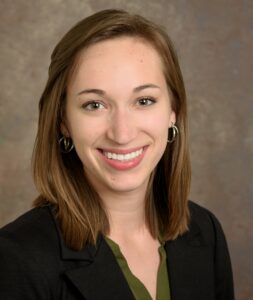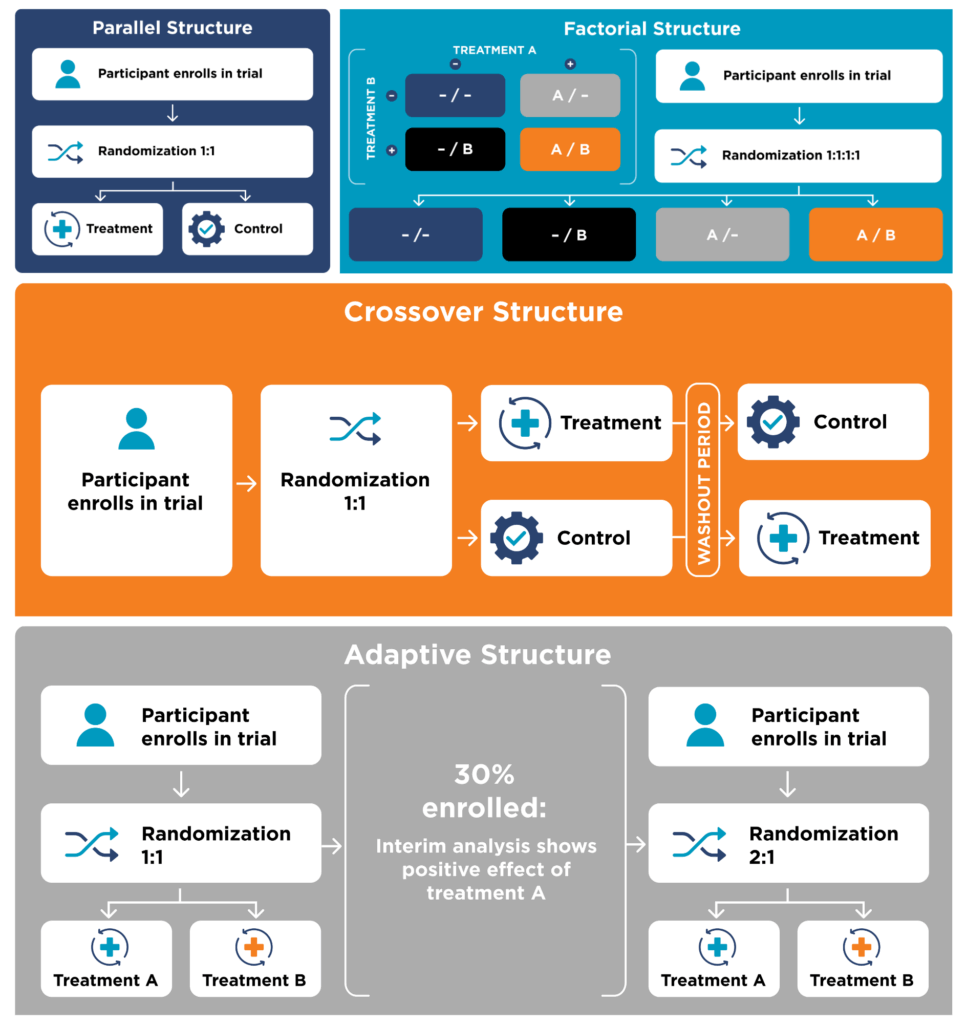

Designing a clinical trial is a complex and intricate process that can have a critical impact on the success or failure of the trial, so I want to jump back to the first stage of the research process for this month’s deeper dive.

In my view, clinical trial design consists of a couple of components: clinical trial structure and how the trial is conducted. For now, I’ll put more focus on clinical trial structure and delve into how the trial is conducted at other times.

Support our May Momentum Campaign! Please consider making a donation today to help us continue the momentum for OMF’s critical research.
Your gift—big or small—will help us expand our clinical trial network, allowing us to test more treatments and accelerate progress for people with ME/CFS and Long COVID.
Clinical trials are critical for identifying and implementing effective treatments for diseases like ME/CFS and Long COVID. They serve as a controlled, systematic way to understand if and how a treatment works.
Clinical trial structures
Clinical trial structure refers to the component of trial design that details which treatments are given to which participant groups and at what time. There are many types of clinical trial structures, but some of the main ones are:
Some clinical trial structures can be hard to imagine based on a description, so if you prefer a graphical depiction of the structures, check out the following.

Each of these four types of clinical trial structure has some relevance for the ME/CFS research field, addressing different objectives. The parallel structure is a simple design that’s ideal for a “does it work?” kind of treatment comparison. The factorial structure, as the description above indicates, is best suited for studying multiple treatments, both individually and in combination. For a disease as complex and multi-systemic as ME/CFS, evaluating multiple treatments is needed. As ME/CFS afflicts a heterogeneous population, a crossover structure may be helpful. Having each participant serve as their own control can remove some of the confounding factors that influence results. Finally, an adaptive structure is attractive for use in ME/CFS because participants are more likely to receive an effective treatment. While this structure makes interpreting the results of the trial significantly more complicated, it may be worthwhile in some cases.
As a practical example, since Open Medicine Foundation’s Life Improvement Trial (LIFT) is testing pyridostigmine, low-dose naltrexone, and the combination of the two drugs, it uses a factorial clinical trial structure. For more information about the LIFT, you can read the protocol paper here.
Why is clinical trial design so important?
The design of a clinical trial can impact the success or failure of the trial, regardless of whether the treatment itself is effective or not. Therefore, it’s critical to select a clinical trial structure that is best suited for the objective of that particular study.
On top of needing to choose the structure that fits the trial objective, other components of clinical trial design are critically important for the participant experience. There are aspects of this that will be covered at other times (e.g., digital health and participant optionality), but the clinical trial structure will also impact the participant experience. Ultimately, it’s important to balance the scientific objectives and what’s best for the patients.
What are the advantages of giving from your Donor Advised Fund (DAF)?
How do I make a donation through my DAF?
Just click on the DAF widget below. It is simple and convenient to find your fund among the over 900 funds in our system.
Still can’t find your fund?
Gifting of Stock
Broker: Schwab
DTC #: 0164
Account #: 47083887
Account Registered as:
Open Medicine Foundation
29302 Laro Drive
Agoura Hills, CA 91301
Please speak to your personal tax advisor and then email or call OMF at 650-242-8669 to notify us of your donation or with any questions.